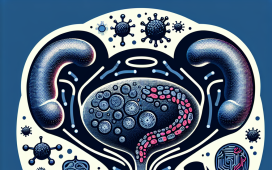Nutrition plays a critical role in maintaining our health and well-being, and recent advances in genetics have created new opportunities for personalized nutrition. Nutrigenomics is an emerging field that aims to understand how our genes interact with the foods we eat, and to provide personalized dietary recommendations tailored to our unique genetic makeup. In this blog post, we will explore the potential of nutrigenomics and its implications for the future of personalized nutrition.
The Science of Nutrigenomics
Nutrigenomics is a multidisciplinary science that combines genetics, nutrition, and other fields to understand the molecular interactions between our diets and genes. Our genes can influence how our bodies process different nutrients and the risk of developing certain health conditions. By analyzing an individual’s genetic makeup, nutrigenomics can help identify gene-nutrient interactions and provide personalized dietary recommendations to optimize health outcomes.
Personalized Nutrition: Beyond One-size-fits-all
Traditionally, nutrition recommendations have been based on population averages and one-size-fits-all guidelines. However, these recommendations may not consider the unique genetic makeup, lifestyle, and health status of each individual. Personalized nutrition, based on nutrigenomics analysis, can help address this limitation by providing tailored dietary recommendations based on an individual’s genetic profile.
Potential Benefits of Nutrigenomics
Nutrigenomics can provide several potential benefits. It can help in the prevention and management of certain health conditions, including obesity, diabetes, and heart disease. By identifying how an individual’s genes influence the metabolism of different nutrients, nutrigenomics can also help optimize nutrition and improve athletic performance. Additionally, personalized nutrition can help individuals make more informed dietary choices and take control of their health.
Challenges and Limitations
Despite the potential benefits, nutrigenomics has some challenges and limitations. The field is still emerging, and more research is needed to establish robust evidence for the effectiveness of personalized nutrition. Genetic testing is also not accessible to everyone due to cost and ethical considerations. Additionally, there are concerns about the potential misuse of genetic information and the need for appropriate regulation to protect individual privacy and prevent discrimination.
Future of Nutrigenomics
The potential of nutrigenomics is vast, and ongoing research and development in the field are expected to shape the future of personalized nutrition. Advancements in technology, such as artificial intelligence and machine learning, can help analyze large-scale genetic data and provide more accurate and precise dietary recommendations. Embracing nutrigenomics can also lead to a shift towards a more proactive and preventive approach to healthcare, where individuals can take an active role in optimizing their health through personalized dietary choices.
Conclusion
Nutrigenomics is an emerging field that has the potential to revolutionize the way we approach nutrition and health. By leveraging genetic information, nutrigenomics can provide personalized dietary recommendations that consider an individual’s unique genetic makeup and lifestyle. Although there are still challenges and limitations, ongoing research and development in the field are expected to shape the future of personalized nutrition. Embracing nutrigenomics can ultimately help individuals take control of their health and well-being, leading to a healthier and more personalized approach to nutrition and healthcare.








